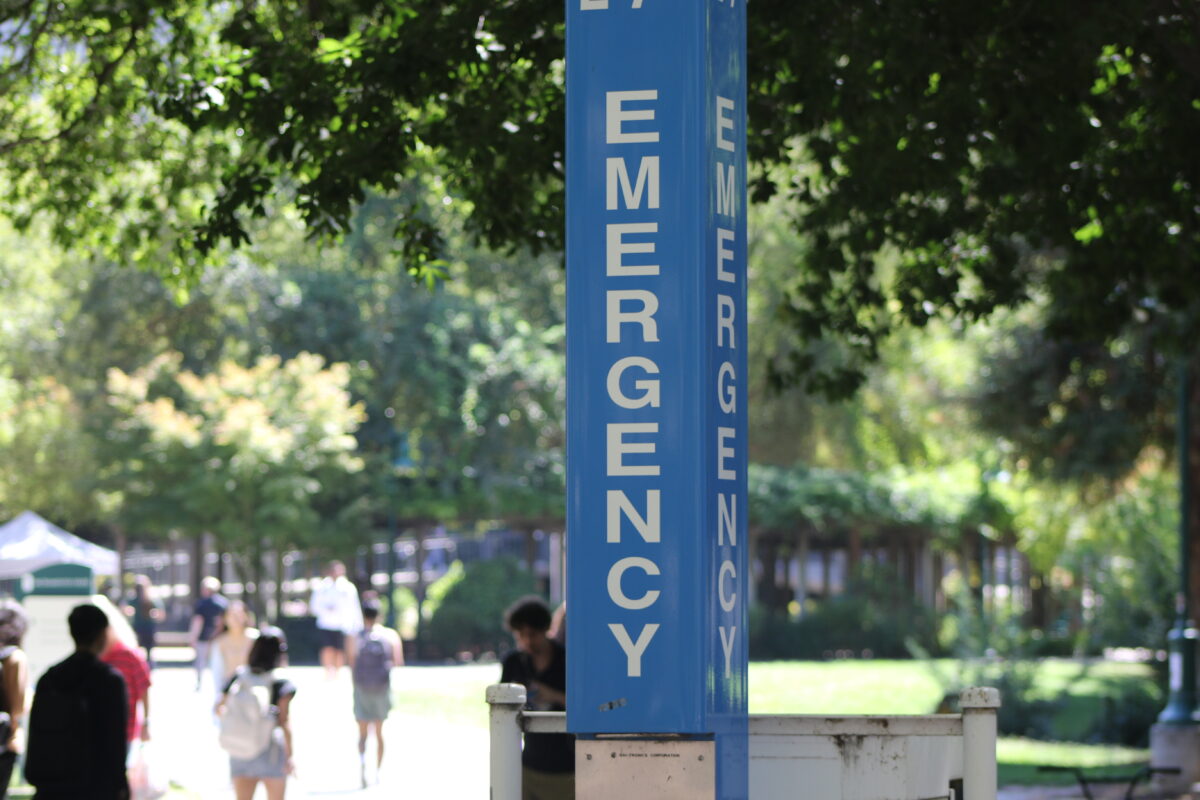Over 50% of college sexual assaults happen within the “Red Zone,” or the first four months of the academic year, according to the Rape Abuse and Incest National Network.
This period between dorm move-in and Thanksgiving break is when sexual assaults on campus are most prevalent. Last fall there was a series of these crimes on campus and there has already been another reported this semester.
RELATED: BREAKING: Sexual assault at Jenkins Hall
The campus has resources available for students, faculty and staff. These include the Title IX office, WEAVE confidential advocates, the Office for Equal Opportunity and the Sacramento State Police Department.
WEAVE
Locations: American River Courtyard, Campus Urgent Care
Call: 916-278-5850
Email: WEAVE@csus.edu
The When Everyone Acts Violence Ends nonprofit organization has two Confidential Campus Advocates and Community Educators, Madeline Hamill and Andrea Becerra-Lara. Both are available on campus in offices at American River Courtyard and the Campus Urgent Care. WEAVE advocates roles include crisis response, peer support, counseling, advocacy and case management for victims of violence.
Becerra-Lara emphasized that WEAVE confidential advocates do not have to report the information shared with them to campus police, Title lX or the OEO. Advocates are allowed to keep what they are told confidential and focus on assisting the victims where they are.
“We never push a survivor to make any decision,” said Becerra-Lara. “At any resources that they are willing to take, that's great, and if they're not, that's also great, we are here and our doors always open.”
The WEAVE advocates said they were prepared to assist anyone who came to them.
“Anyone can experience sexual violence; it impacts everyone in the community,” Hamill said. “We support folks from all different types of backgrounds, experiences, relationships, everything like that.
Campus Police
Location: Public Safety Building
Call: (916) 278-6000
Email: police@csus.edu
“We want to protect the students that are in our bubble,” Officer Kim Mojica of the Sacramento State Police Department said. “Make sure that they have what they need so that they can just focus on college, getting their degree and enjoying their time while they're here; not be either retraumatized or victimized.”
Mojica said the goal of campus police in these cases is to support victims and make sure they are safe. If the victim chooses, they will also pursue a criminal investigation.
“It's driven by what the survivor wants so we don't browbeat them,” Mojica said. “You know, obviously, from my perspective, yes, I want them to be held accountable. I want to be able to arrest them.”
One thread that was common with both campus police and the WEAVE confidential advocates was the importance of returning the survivor to a safe space to minimize the risk of further harm.
“We just want to make sure that once they leave us, they are safe from the perpetrator,” Mojica said.
Title IX/OEO
Location: Director of the Office for Equal Opportunity, Del Norte Hall 2005
Call: (916) 278-5770
Email: equalopportunity@csus.edu
If you or someone you know has been impacted by sexual violence, domestic violence or any traumatic experience please use the resources that both the campus and the county provide to assist in recovery.
Sexual harassment, sexual misconduct, dating violence, domestic violence, sexual exploitation and stalking are all covered under the California State University nondiscrimination policy. Inquiries regarding the policy can be directed to Skip Bishop, Sac State’s executive director of Equal Opportunity and Title IX officer.
“PTSD is very common for survivors in these situations, and there are so many services out there for you,” Mojica said. “All you have to do is say you want it and there's so many at your disposal and it's free.”

































































































































